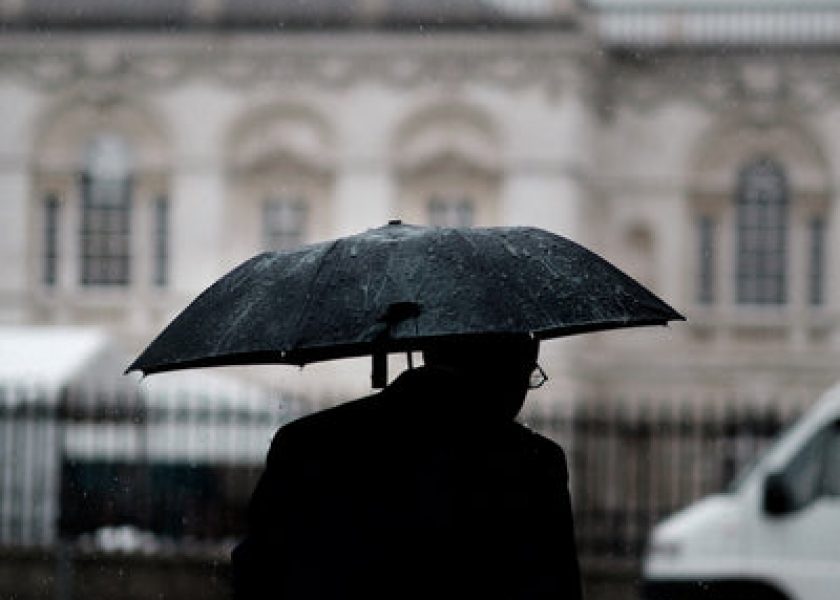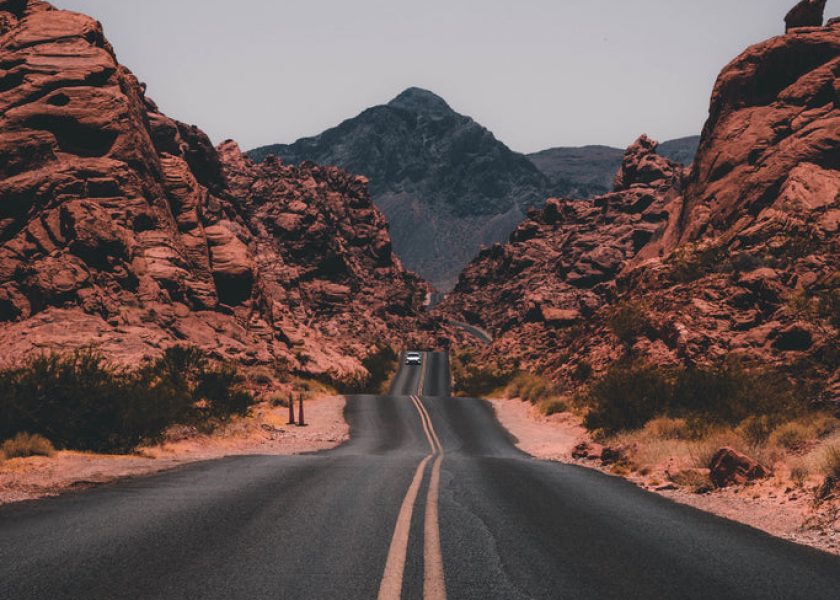Life is going to throw you some curveballs. But, that doesn’t mean that you can’t be prepared for them. Here’s how having both an emergency fund and the right insurance in place can help protect you during those inevitable rainy days.
SH!T HAPPENS. ARE YOU FINANCIALLY PREPARED?
Imagine if tomorrow you were no longer able to work, your income decreased substantially or your expenses spiked dramatically. What would you do?
What would you do if a family member gets sick and you have to take unpaid time off work to care for them? Or, worse, someone you love passes away, and now you’re left with a bill to take care of their final expenses.
Though this might seem dramatic, maybe even a bit morbid, when it comes to your finances, you have to be ready for anything. These drastic scenarios aside, there are other, more common reasons that you would need to be financially prepared.
Perhaps you are a freelancer whose income varies wildly from month to month. Maybe your dog just ate something extremely questionable and now your palms are sweaty as the vet receptionist prints up your bill.
These are just a few examples of exactly why you need to have a fully-funded emergency fund locked and loaded at all times.

BULK UP YOUR EMERGENCY FUND
If you had at least three to six months worth of essential living expenses set aside, you would feel a lot better about your situation, wouldn’t you? This money is designed to function as income replacement in the event that you can no longer work, your income decreases drastically, or your expenses spike drastically.
It’s important to note that your emergency fund should be kept liquid and safe from market risk.
- Liquidity means your money is readily accessible, so not locked up in an investment you can’t sell or an account you can’t access freely.
- Safety implies that it is not invested in anything that can cause it to decrease in value. So, ideally you’re looking to store this in a standard high-interest savings account.
Emergencies are almost always an unpleasant surprise. Like that annoying aunt that always visits without calling and tells you how much weight you’ve put on. We recommend eliminating all debts before advancing to investments, and using your emergency fund to serve almost like a self-funded insurance policy to protect against the risk of running up debts and defaulting on bills due to short-term income shortfalls.
WHAT TO DO WHEN AN EMERGENCY FUND ISN’T ENOUGH
What about instances when the 3 to 6 months worth of basic living expenses in your emergency fund just won’t cut it? This is where an appropriate insurance policy that’s fit to your goals, financial situation, and lifestyle comes in.
In this case, we’re talking about personal insurance policies that protect your livelihood, not your stuff. There are a few different types of insurance policies that fall under this category.
Life insurance. In the event of your death, your beneficiary/(ies) receive a tax-free lump sum death benefit.
Critical Illness Insurance. In the event you become diagnosed with a major illness, or suffer from a catastrophic injury, you receive a tax-free lump sum living benefit.
Disability Insurance. In the event you become unable to work for an extended period of time due to injury or illness (including mental health), you receive a monthly tax-free living benefit.

DEATH BENEFITS AND LIVING BENEFITS
Within the realm of personal insurance policies, there are both death benefits and living benefits. Life insurance provides a death benefit, which implies that you personally won’t be seeing that payout, but your beneficiaries will.
If there are people who depend on you financially, or if there are huge financial consequences as a result of your death, life insurance serves as a source of financial relief and care for your loved ones.
Critical Illness & Disability Insurance, on the other hand, provides you with a living benefit, which means you will personally benefit from it should your expenses increase or your income decrease as a result of an accident or injury. So in effect, these policies serve as an additional emergency fund for you and your family.
DO I NEED AN EMERGENCY FUND OR INSURANCE?
Having an emergency fund is essential for everyone. Purchasing an insurance policy, on the other hand, depends more on your personal circumstances and the potential scenarios you would like to prepare for.
Here are some questions and considerations to help guide your decision-making process on whether or not you should purchase insurance, and what kind of insurance you should consider.
- Do you have financial dependents, such as children or elderly parents who rely on your financial care? Then, you absolutely need life insurance. Though this won’t protect you, per se, it does protect your family by replacing the years of income you would have earned to help support the household and raise your family.
- Do you have large debts that cannot be easily or quickly cleared (such as a mortgage, for example)? Life insurance ensures that your partner or your family can pay off the balance in full without selling the house, or keep the cash to maintain ongoing payments.
- Are you self-employed? Have high expenses? Don’t not have a partner or family member you can financially rely on? Then, you need disability insurance. If you become unable to work for an extended period of time due to injury or illness an emergency fund can help. But, what if the problem is more severe? How long will that money last before it runs out? As a sole proprietor you are not automatically enrolled in or covered by programs like Employment Insurance (EI) or Workers Compensation. A personal disability plan will ensure that your paycheque keeps coming month after month when you need it the most.
CONSIDER YOUR ODDS OF DEATH AND ILLNESS OR INJURY
We hate to be the bearers of bad news, but, we’re all going to die. It’s not a pleasant thought but it’s the truth. Ask yourself, “what are the odds that my loved ones will suffer financially if I’m not around?” The answer to that should determine your need for life insurance.
Similarly, the most important question when it comes to serious illness or injury is, “what are the odds that I will struggle financially if, due to illness or injury, I was unable to earn an income for longer than 3-6 months?” The answer to that is what determines your need for critical illness or disability insurance.

DO YOU NEED AN EMERGENCY FUND OR INSURANCE?
So, to sum it all up, we ALL need a personal emergency fund – that is a non-negotiable. But, we don’t all necessarily need insurance. Ultimately, it’s a matter of who you are trying to protect, what scenarios you’re seeking protection from, and what the odds are that that particular scenario would result in drastic financial consequences.
Still have questions? Book a free call with a Paper & Coin Financial Planner. Our financial coaches are Certified Financial Planners (CFP) and licensed insurance brokers who can help you every step of the way. From planning your emergency fund, understanding insurance products, and finding the right solutions for your needs.

WRITTEN BY VICTORIA BEVILACQUA



